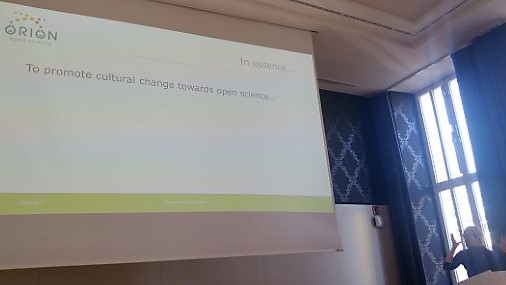Key Areas:
- Funder Training –Providing research-funding organisation with knowledge and practical guidance to help increase the understanding and implementation of Open Science principles in research funding.
- Offline/Face-to-face Training – A series of workshops across Europe where organisers will provide a full day training for post-graduate researchers and post-docs on incorporating Open Science Principles into day-to-day Life Sciences research practice.
- Online Training – Platform and digital media which allow researchers and other interested stakeholders to learn more about Open Science principles in the Life Sciences.
Aims:
The aim of the ORION training is to raise awareness of Open Science as an alternative way to engage with academic research in the life sciences and provoke a culture change in day-to-day practices. In order to do this effectively, innovative, engaging, and low-burden training techniques and materials need to be developed. These will range from face-to-face workshops to an online training platform to online materials such as videos, podcasts, and guides.

Concept and Pedagogy:
The underlying concept behind how the training will be developed is that the in-person training and the work on the podcasts will inform the content of the online training. The results of the workshops will reveal the different ways researchers want to include Open Science practices in their day-to-day work. This information will be used to create the personalised quiz. Additionally, the participants in the in-person workshops will be asked to plan and present their ideas on how to include Open Science in their projects. The steps they take will be used to build a step-by-step planning template for the online platform. The podcasts will remain available so they can be accessed online and will also reveal issues and solutions, which can be incorporated into the online training.
Therefore, the training uses a responsive, blended learning approach in which the learner influences and leads their own learning journey. The output of the course is linked to research practice. This blended course offers a platform for a peer network which is engaged in the action research cycle that informs current practice. The online course design is personalised, using metrics gathered during the face-to-face sessions, to optimise relevance of the course for the participants so as to increase motivation and to ensure on-going involvement in Open Science approaches.